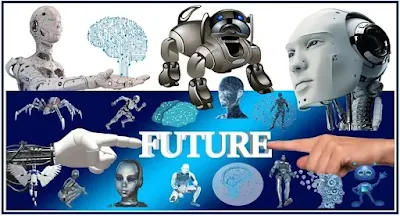Artificial Intelligence (AI) has evolved rapidly over the years, transforming various aspects of our lives and opening up new possibilities. As we stand on the cusp of the future, the potential of AI appears boundless. In this article, we delve into the exciting advancements and potential trajectories that lie ahead, shaping the future of artificial intelligence.
Exploring the Promising Future of Artificial Intelligence
Enhancements in Deep Learning:
Deep learning, a subset of AI, has propelled groundbreaking innovations, and its future holds great promise. Advancements in neural network architectures and algorithms will lead to more accurate and complex models. This will revolutionize fields like computer vision, natural language processing, and robotics, enabling machines to perceive and understand the world with increased precision and contextual understanding.The Rise of Autonomous Systems:
Autonomous systems empowered by AI will continue to gain prominence. Reinforcement learning techniques will enable machines to learn and adapt in dynamic environments. We can expect to witness self-driving cars, intelligent drones, and robots that seamlessly navigate and interact with their surroundings, revolutionizing industries like transportation, logistics, and healthcare.Natural Language Processing (NLP) Revolution:
The future of NLP holds immense potential. AI-powered language models will achieve greater contextual understanding, making conversations with machines more natural and meaningful. Virtual assistants will become even more intelligent, capable of handling complex tasks and providing personalized recommendations. Language translation systems will break down barriers, fostering global communication and collaboration.Ethical AI and Responsible Development:
As AI becomes increasingly integrated into our lives, ethical considerations and responsible development practices become paramount. Researchers, policymakers, and industry leaders are actively working towards developing transparent and explainable AI systems to ensure accountability and trust. Addressing biases, privacy concerns, and algorithmic fairness will be pivotal for creating AI systems that benefit society as a whole.AI Revolutionizing Healthcare:
The healthcare sector stands to benefit immensely from AI advancements. AI algorithms will enhance disease diagnosis accuracy, streamline drug discovery processes, and enable personalized medicine. Wearable devices and remote monitoring systems will continuously track health parameters, providing proactive care and early detection of potential health issues. AI-powered robotic assistants will assist in surgeries and perform tasks with precision.AI for Sustainability:
The synergy between AI and sustainability will shape a greener future. Smart energy grids will optimize energy consumption, reducing waste and promoting renewable sources. AI models will aid in climate modeling, predicting natural disasters, and developing mitigation strategies. Intelligent transportation systems will optimize traffic flow and reduce carbon emissions. AI's potential for sustainability is vast, contributing to a more environmentally conscious world.Human-AI Collaboration:
AI will not replace humans but rather augment their capabilities. Collaboration between humans and AI systems will become commonplace, transforming industries like finance, creative arts, and scientific research. Human intuition and creativity, combined with AI's computational power and data analysis, will lead to groundbreaking discoveries, innovative solutions, and enhanced productivity.Regulations and Ethical Frameworks:
The future of AI necessitates robust regulations and ethical frameworks. Policymakers must proactively address challenges related to privacy, data security, bias, and algorithmic accountability. International collaborations and standards will be crucial in establishing guidelines that foster responsible AI development, ensuring its positive impact on society.Augmented Reality and Virtual Reality:
AI will play a crucial role in advancing the fields of augmented reality (AR) and virtual reality (VR). AI-powered algorithms will enable more realistic and interactive simulations, allowing for enhanced training and education experiences. AR and VR will also transform the way we interact with digital content, enabling more immersive and personalized experiences.
Edge Computing and AI at the Edge:
Edge computing involves processing data locally on devices rather than sending it to the cloud, enabling faster processing times and reduced latency. AI at the edge will become increasingly common, enabling devices to perform intelligent tasks without requiring constant connectivity to the cloud. This will lead to more efficient and autonomous devices, improving performance in areas like industrial automation, IoT, and smart homes.
The future of artificial intelligence is a landscape filled with immense opportunities. Advancements in deep learning, autonomous systems, NLP, and healthcare will revolutionize various industries. The responsible development and ethical considerations will guide AI's trajectory, ensuring its benefits are shared inclusively. As we embrace the future, it is crucial to navigate the evolving AI landscape with a balanced approach, leveraging its potential to create a brighter and more prosperous world.


.jpeg)
